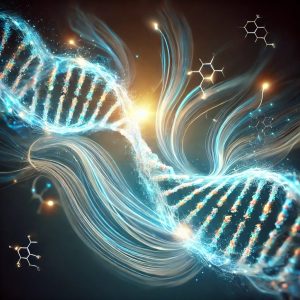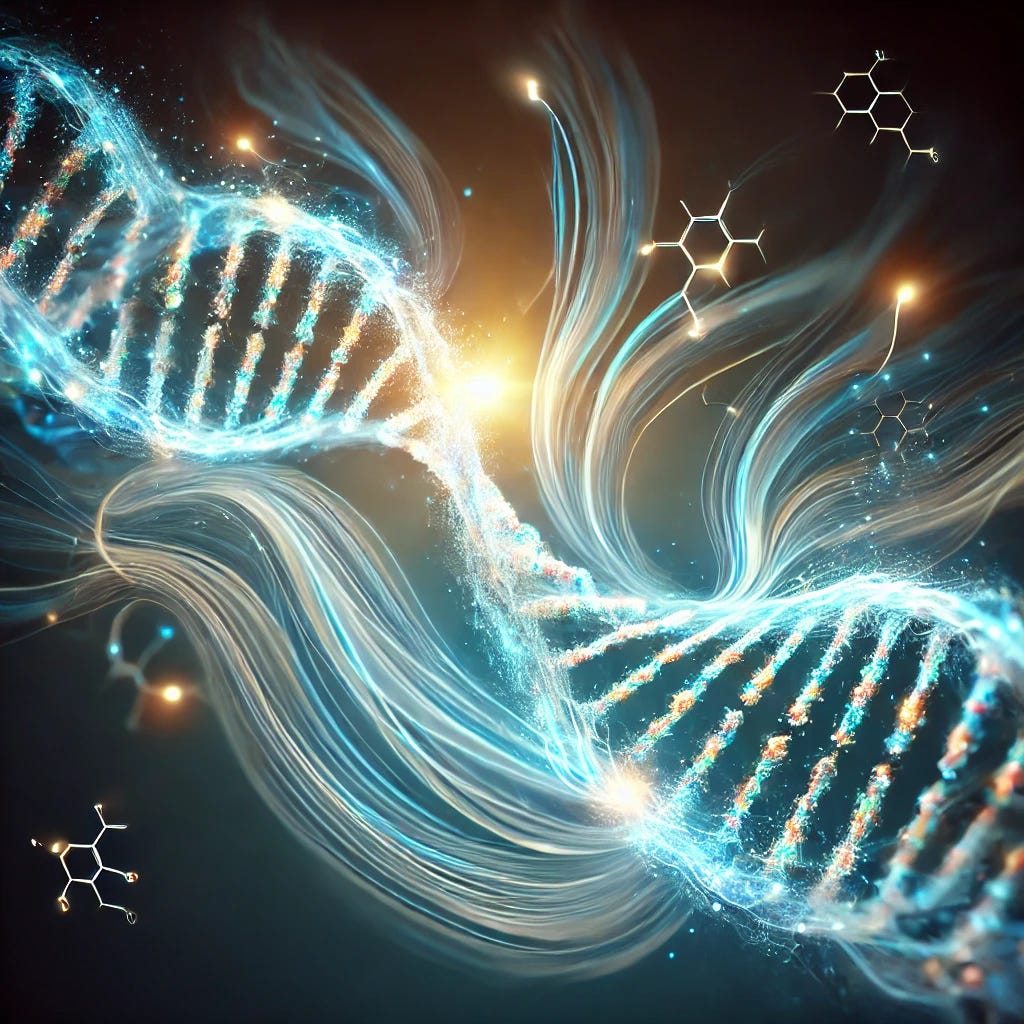The intersection of science and spirituality is becoming more evident as we explore how deeply interconnected our mental, emotional, and spiritual experiences are with our physical bodies. One of the most profound areas where this connection is visible is through epigenetics—the study of how our environment and experiences can influence gene expression. In essence, the idea that we are shaped not just by the genes we inherit but also by the life experiences we encounter has brought ancient spiritual wisdom into a modern scientific framework.
What is Epigenetics?
Epigenetics shows that while we inherit our genes, how those genes express themselves can be significantly influenced by our environment, behaviors, and experiences. Trauma, stress, and emotional blockages, for instance, can trigger negative gene expressions, leading to physical, mental, and emotional imbalances. On the flip side, positive experiences like healing, mindfulness, and emotional release can shift those expressions toward optimal health and well-being.
This is where spirituality and trauma work come into play. For centuries, spiritual practices have emphasized the importance of healing emotional wounds and releasing energetic blockages. Now, we understand that these practices may not only clear our minds and hearts but also have a direct influence on our genetic makeup.

The Holocaust Survivor Example: The Inheritance of Trauma
A powerful example of epigenetics can be seen in the descendants of Holocaust survivors. Research has shown that the intense trauma experienced by survivors of the Holocaust can be passed down through generations, influencing the gene expression of their children and even grandchildren. Studies have demonstrated that children of survivors are more likely to exhibit higher levels of stress and anxiety, even though they did not personally experience the horrors of the Holocaust.
This phenomenon is a profound illustration of how trauma can shape not only the individual but their descendants as well. The trauma of surviving such an atrocity left imprints on the survivors’ gene expression—markers of stress, fear, and survival were “turned on” in their DNA. These markers were then passed down, influencing how their children and grandchildren experience the world, often leading to heightened stress responses and emotional challenges.
Trauma and Gene Expression
Trauma leaves imprints—not only in our psyche but also in our body’s cellular memory. When we carry unhealed emotional wounds, these traumas can influence gene expression, perpetuating cycles of stress, illness, and emotional patterns across generations. Trauma can “turn on” certain genetic markers, leading to conditions like anxiety, depression, and even chronic diseases.
Healing trauma, therefore, becomes a profound way to release these genetic expressions and open the door to new possibilities. By addressing and releasing trauma—whether through spiritual practices like meditation, energy healing, or mind-body integration techniques—we allow our bodies to shift into a more balanced state. As we heal, we can “turn off” the gene expressions triggered by trauma and “turn on” those that promote health, resilience, and vitality.
The Role of Spiritual Practices
Spirituality has always held the key to deep healing. Practices like breathwork, meditation, mindfulness, and energy work have the power to calm the nervous system, release stuck emotions, and create a state of inner harmony. These practices, while ancient, align with what we know about epigenetics—by reducing stress and promoting inner peace, we influence our genetic expression toward health.
Trauma work holds a significant role in this process. When we face our traumas, we allow ourselves to release the emotional and energetic hold they have on our bodies. This release is not just emotional but cellular. The genes that have been turned on by fear, pain, and trauma can be quieted, while the genes that support growth, healing, and resilience are activated.
Healing Gene Expression Through Trauma Work
Through dedicated trauma work—using a combination of Eastern ancient wisdom practices and modern spiritual psychology techniques—we can begin to rewire not just our emotional responses but our very biology. As we release trauma, we give our body and spirit the space to heal, and in doing so, we influence the very blueprint of our being.
The Spiritual Key to Transformation
Spirituality offers the tools to unlock this transformation. When we integrate spiritual practices with trauma healing, we tap into the body’s innate intelligence to heal and thrive. We become not just survivors of our past experiences but creators of a new, healed future.
In this intersection of epigenetics and spirituality, we find profound hope. Trauma is not a life sentence—by releasing its hold through spiritual and emotional work, we have the power to change not just our lives but the lives of future generations.






